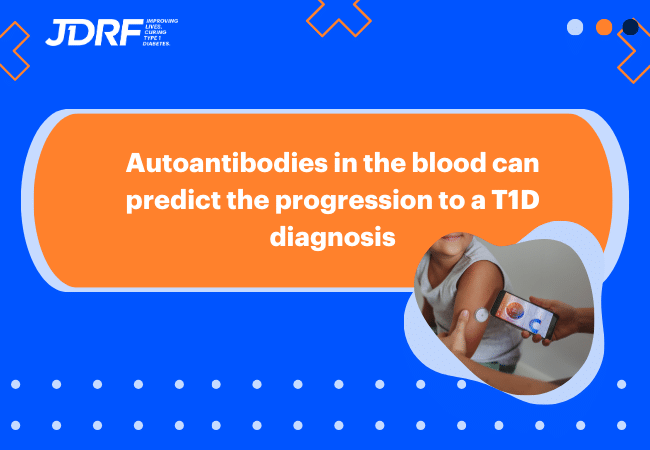Discovery Paves Way for Type 1 Diabetes Therapy
Researchers at St Vincent’s Institute (SVI) in Melbourne led by JDRF
Career Development Award recipient, Associate Professor Stuart Mannering, have identified a key target of the immune response that causes type 1 diabetes (T1D).
We know that that T1D is caused by the immune system destroying insulin-producing beta cells, however the immune system is extremely complex, and scientists have been investigating exactly why this happens. This team at SVI have been studying one specific type of immune cell, called a CD4+ T cell. These cells recognise part of the beta cells as foreign, however the exact targets that are deemed the enemy have not yet been well-defined.
This study, published in the journal PNAS (Proceedings of the National Academies of Sciences), showed that blood taken from people with recent onset T1D contained T cells that recognised C-peptide. When insulin is made, C-peptide joins two parts of the insulin protein together. In order to finalise the insulin making process, C-peptide is removed, leaving just the final insulin protein. That is why C-peptide can be used as a marker of insulin production, as it is released when insulin is made.
A/Prof Mannering with his PhD student Dr Michelle So and colleagues from Murdoch Children’s Research Institute, Walter and Eliza Hall Institute and the University of Melbourne, showed that C-peptide was recognised by CD4+ T cells from the blood of more than 60% of people with recently diagnosed T1D, but in less than 10% of people without T1D.
A/Prof Mannering says that this study is different from earlier ones they have done, which looked at fragments of the C-peptide in isolation, but not the full C-peptide molecule.
“Our study shows that the T cells respond most robustly to the full-length C-peptide. This points to C-peptide being an important, clinically relevant target of disease-causing CD4+ T cells in people with type 1 diabetes. This knowledge will allow us to begin to develop preventative therapies to stop the aberrant immune response before it does irreversible damage.”
“In addition, our results will allow the development of blood tests to determine whether a person is likely to get type 1 diabetes and to measure how well a therapy to stop the progression of the disease is working.”
Dr So says that someone with T1D must constantly be aware of their blood glucose levels, which are influenced by the amount of insulin in their system, what they eat, how much they exercise, as well as other factors like stress and illness.
“While insulin injections or infusion keep a person with type 1 diabetes alive, they don’t cure the disease, or prevent long-term complications in people who are unable to keep their blood glucose within target levels. If we could curb the immune system before the insulin-producing cells are destroyed, this would represent a huge step forward.”
This research was also part funded by the NHMRC and Diabetes Australia.




